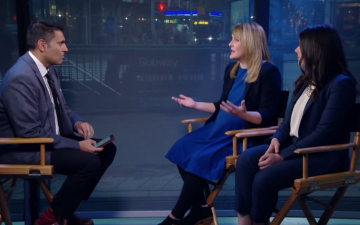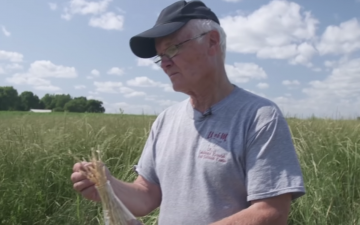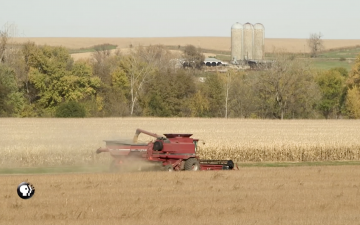The threats of a growing population and climate change, in addition to poverty and conflict, mean the world’s food supply is under pressure like never before. Many experts agree the way we produce food is not only unsustainable, but is itself a major contributor to climate change. PBS NewsHour Weekend’s “Future of Food” series will present a global exploration of these issues as well as potential solutions.
Our initial stories explore innovations in science and technology, and the potential impact on animal production: We report on controversy over genetically modified, fast-growing salmon developed in Canada, poised to hit U.S. markets soon. In California, we talk to scientists and entrepreneurs asking if growing real meat in laboratories can solve the environmental and ethical problems of traditional meat production. Our next two stories look at food waste and insecurity: We see how France is becoming a world leader in eliminating food waste and explore how food security for nearly a million refugees in Lebanon and Jordan is being transformed with technology and science, including hydroponics, smartphone apps, iris scans and blockchain. Lastly, we focus on farming: In Iowa, corn and soybean farmers—confronting climate change, erosion and pesticide resistance—are slowly changing their ways by diversifying crops and creating healthier ecosystems. In India, a mass movement called agroecology has resulted in more than 100,000 farmers adopting more sustainable farming practices and the government wants 6 million more to follow.



